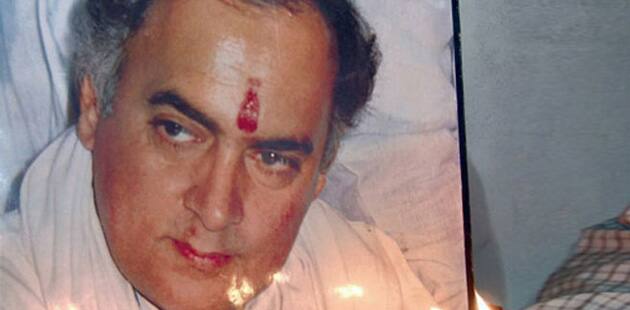
Sushmita Dutta
Twenty three years ago on May 21, 1991, Rajiv Gandhi, the sixth prime minister of India, was assassinated while campaigning for Margatham Chandrasekar, the Congress candidate from Sriperembudur, near Chennai in Tamil Nadu. The then Congress president was campaigning for the ongoing Lok Sabha elections that he fought with the AIADMK chief Jayalalithaa as an ally in the state.
The mind behind this heinous act was - battle scarred Tamil Tigers’ leader, Vellupillai Prabhakaran - who emerged from Sri Lanka in early 90s. The LTTE chief was looking for revenge since the Indian Army waged a war along with the Sri Lankan government against the Tamil Tigers. During the war, the terror outfit lost hundreds of cadres and even Prabhakaran himself, came very close to being killed.
At a time, when Rajiv Gandhi was out of power, the Tiger chief decided to draw a plan to assassinate him. A huge plot was hatched which was assigned to Sivarasan, who identified three women suicide bombers to carry out the plan. Amongst them, Dhanu was chosen as the main suicide bomber.
When Rajiv Gandhi finally reached Sriperumbudur to campaign for his party, LTTE was ready to strike. Dhanu garlanded Rajiv on the pretext of wishing him, then touched his feet and detonated the bomb. Seventeen people including the country’s youngest PM were dead. The politician who, everyone thought would change India, was no more. It was perhaps one of the most chilling and meticulously planned assassinations in India.
In the memory of the late Prime Minister, the central government started observing May 21, as Anti-Terrorism Day since 1992. On this day, the employees in government offices, public sector undertakings and other public institutions in the country take a pledge to oppose all forms of terrorism and violence.
Post-Independence, India has been waging a double-edged war against the terror outfits.
On the one hand, are those from the neighbourhood country, which has been constantly waging a proxy war by protecting, abetting and training terrorists. In 2008, Ajmal Kasab along with his nine associates carried out the barbaric Mumbai terror attacks - a clear proof of Pakistan’s hand in destroying our nation`s peace.
In the last decade alone, the death toll due to terror has been humongous. India’s markets, hotels, hospitals, business centres, railway stations have all been targeted time and again.
The other threat is from the terrorists, who are spreading fear from inside the country. Terror outfits, movements and individuals have been using the pseudo-religious garb to make people of different religions and communities fight among themselves.
But, probably the biggest threat internally to India is from the Naxals. The presence of this extremist group today has spread to almost every state in India - with Odisha, West Bengal, Maharashtra, Andhra, and Chhattisgarh leading the pack.
To fight against these armed uprisings and terrorism, some key points need focus:
Political issues: In states like Assam and Tripura, terrorism has been a problem for a long time now. Political factors, like failure of Government to control large scale illegal immigration from Bangladesh and demand for economic benefits have forced people to take up arms.
Economic issues: Economic factors such as absence of land reforms, rural unemployment, exploitation of the landless labourers by the land-owners etc. put people in vulnerable positions. These economic grievances and gross social injustice have given rise to ideological terrorist groups such as various Marxist or Maoist groups operating under different names in large parts of India.
Ethnic issues: Lot of blood has been shed in the name of ethnic cleansing in every part of the country like the Bodoland issue.
Religious issues: Terrorism in the name of religion is one of the oldest ways to spread fear. Previously in Punjab, some Sikh elements belonging to different organisations took to terrorism to demand the creation of an independent state for the Sikhs called Khalistan. In J&K, people are constantly being polarised in the name of religion and a huge terror network is being run for decades now.
It is high time that terrorism should be brought down with an iron fist. The government’s approach should be of zero-tolerance towards terrorism.
It is also important to talk tough with Pakistan - who is been feigning ignorance - about stopping all kinds of terror acts across the border. If they don’t, India should suspend all kinds of relations and peace talks. It is important to understand that peace talks cannot happen under the shadow of guns.
It is time to stop being resilient and to fight back the evil of terrorism. The image of a country’s stability is the biggest casualty of terrorism, especially for a rapidly growing economy like India. The most lethal blow that terrorist activities can deliver is that it can cripple the image of a nation on the international platform.
Even after losing two Prime Ministers to brutal assassinations, the outgoing UPA government learnt no lessons. Terror attacks in places like Delhi, Pune, Varanasi, Gaya, Mumbai etc. have rocked the nation in past few years. Some of the biggest terror attacks have occurred in the last decade, with Mumbai being targeted several times.
All eyes are now on the Narendra Modi-led BJP government. Expectations are running high that the new government will tackle the issue of terrorism firmly.
Pakistan seems optimistic about its future relationship with India as the BJP`s manifesto was focused on economy and sought good ties with its neighbours. Modi made it clear that terror and dialogue cannot go hand-in-hand.
While there are expectations that the new PM would continue India`s broad engagement with Pakistan, he would also respond firmly if any cross-border terror attack is orchestrated or ceasefire along the Line of Control (LoC) is violated.






